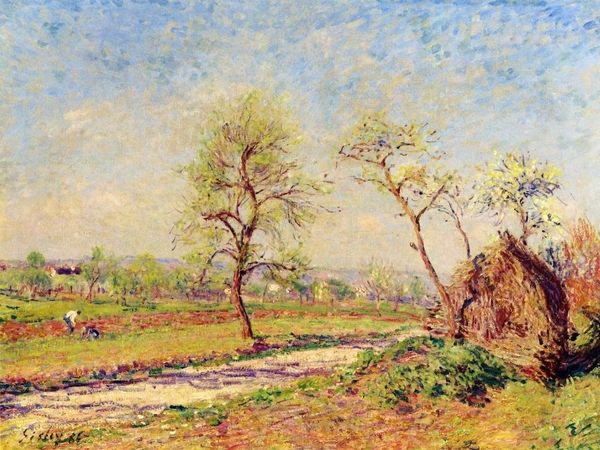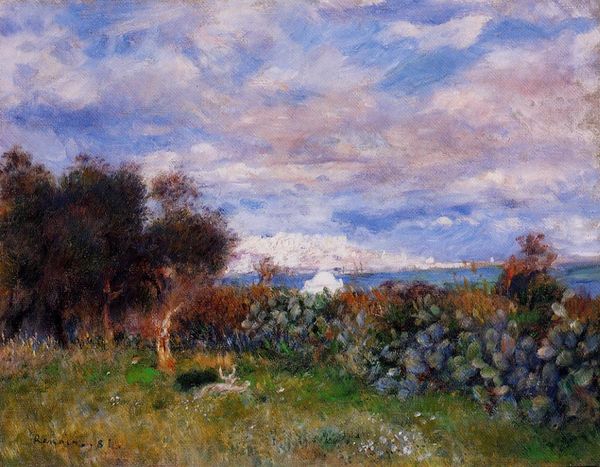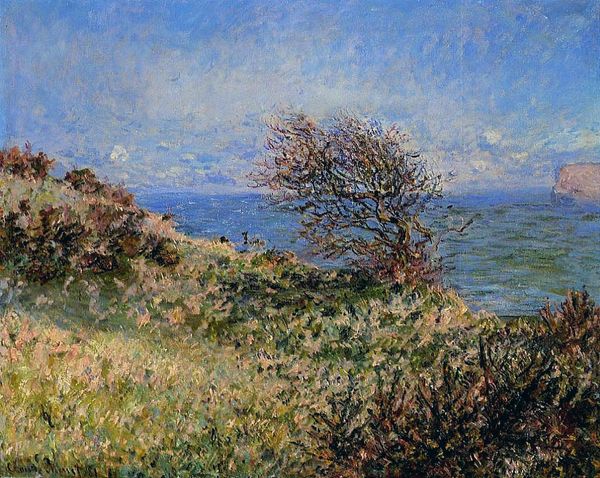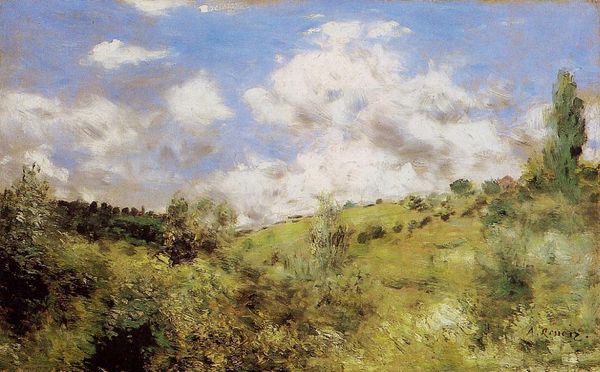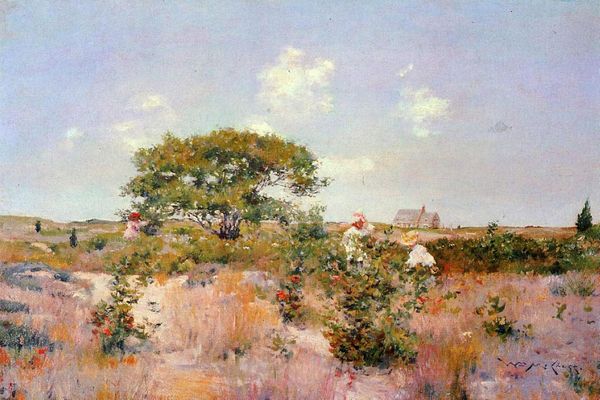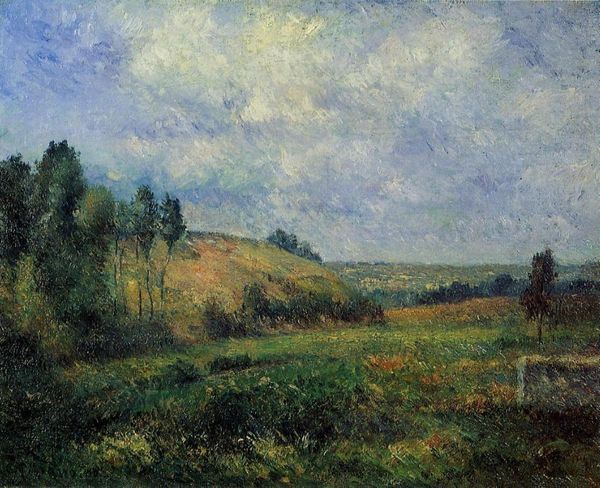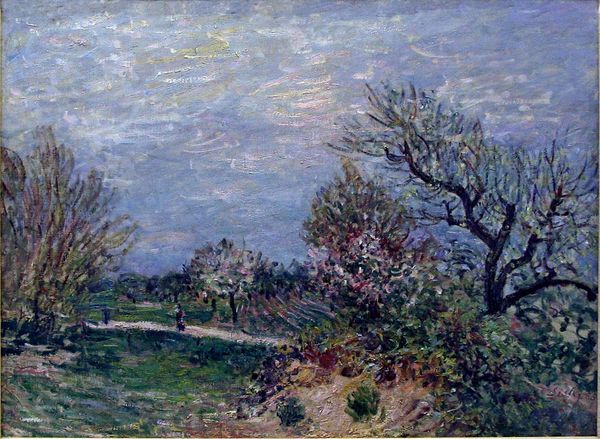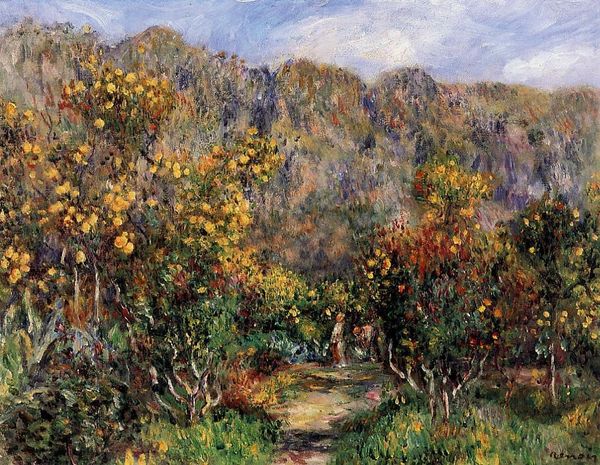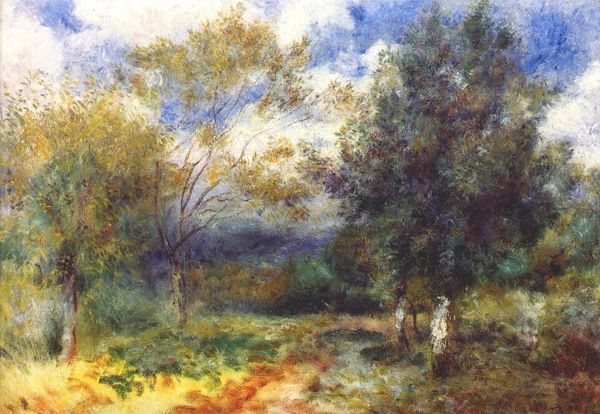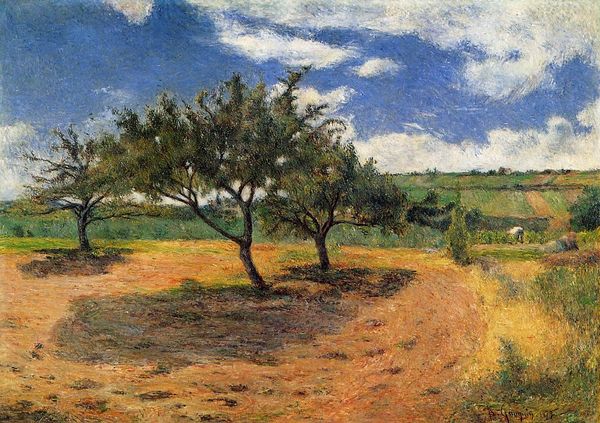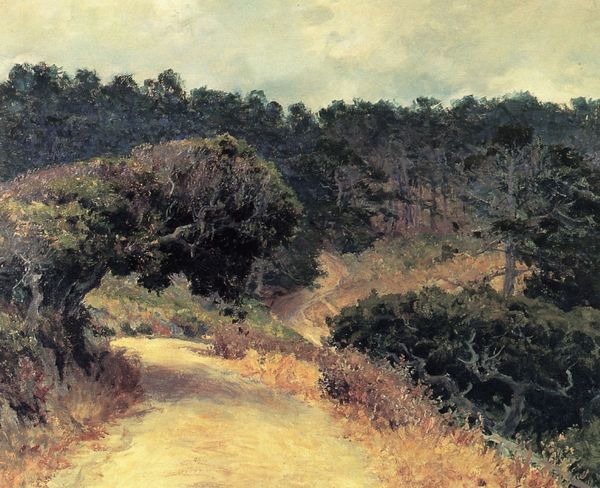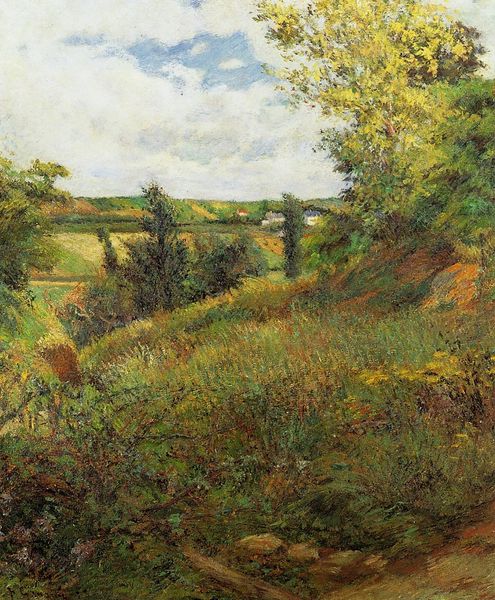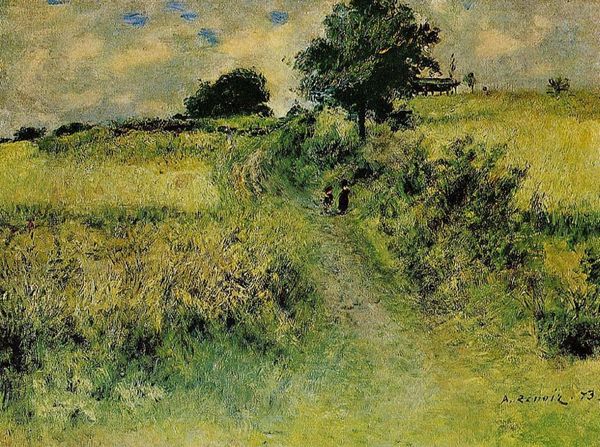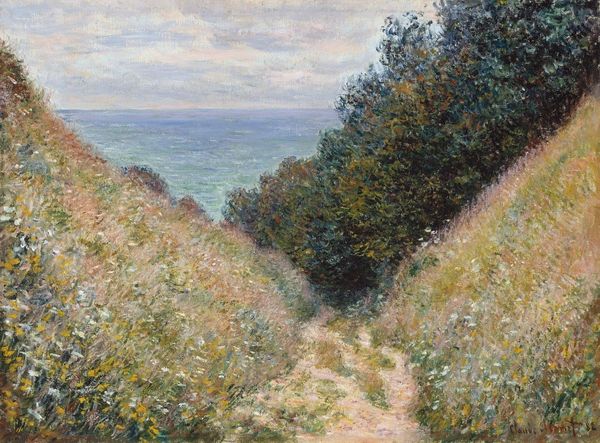
Dimensions: 60 x 73 cm
Copyright: Public domain
Editor: So, here we have Alfred Sisley's "Edge of Fountainbleau Forest, June Morning," created in 1885 using oil on canvas. It evokes a real sense of serenity and quiet, a peaceful countryside scene. The way the light filters through the trees… What’s your take on it? Curator: It’s tempting to just appreciate the surface beauty, but remember, the Impressionists weren’t simply painting what they saw. This work is steeped in the sociopolitical context of late 19th-century France. Consider the rise of the bourgeoisie, the increasing industrialization, and the yearning for an idealized past. Sisley isn't just painting a landscape, he's responding to these broader societal shifts. Does this contrast with the academic salon painting of the era strike you as deliberately confrontational? Editor: Yes, definitely! It feels like a rejection of those grand historical paintings, doesn’t it? More focused on capturing an ordinary moment in time. How did the Salon at that time really see that sort of… modern-looking, plain-air work, exactly? Curator: Precisely! And that’s what makes it so radical. The Salon valued meticulously rendered historical scenes and portraiture that supported existing social structures. Paintings like Sisley’s threatened the hierarchy. Its perceived ‘unfinished’ quality, the emphasis on fleeting light effects… were seen as challenges to established artistic authority. The location itself also holds meaning. The forest, outside the confines of urban space, was a space for escaping social expectations and rules. It served as a site for both industry *and* pleasure at this time. Sisley is subtly hinting at how the growth of cities are changing landscapes. Editor: That's so interesting! I hadn’t really thought about the landscape itself as a kind of commentary. Curator: And think about the role of the art market. Where was a piece like this supposed to be seen and enjoyed? What kind of collector would it appeal to? Editor: Hmm... likely one who also desired an "escape" from the constraints of modern society. I’ll have to think more about landscape as political commentary from now on!
Comments
No comments
Be the first to comment and join the conversation on the ultimate creative platform.
